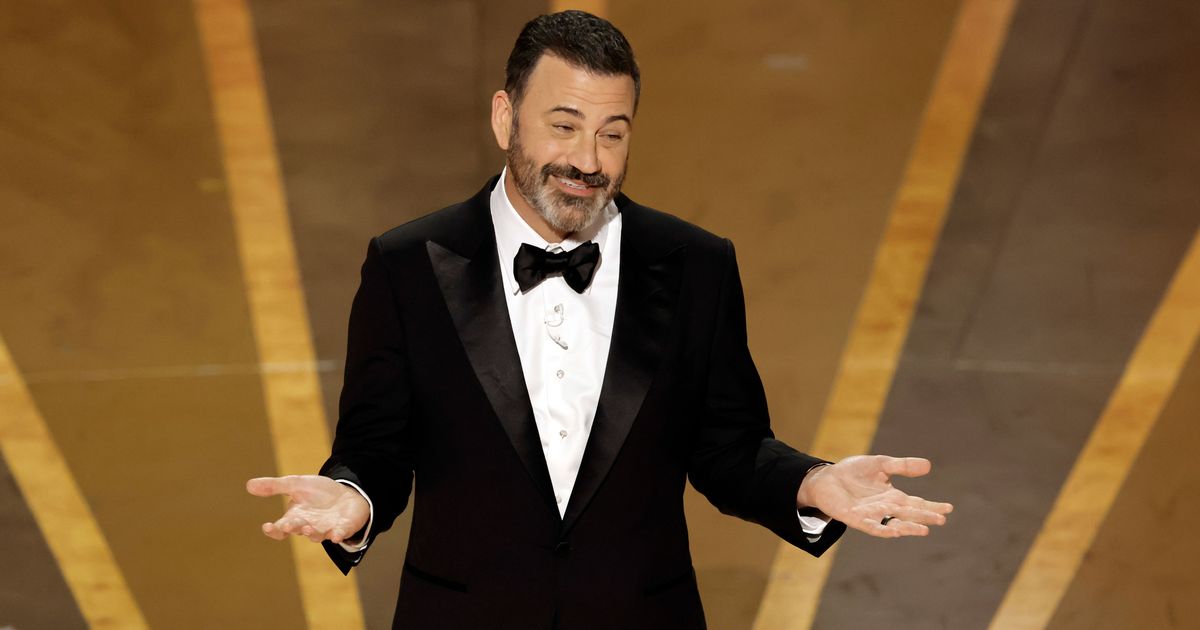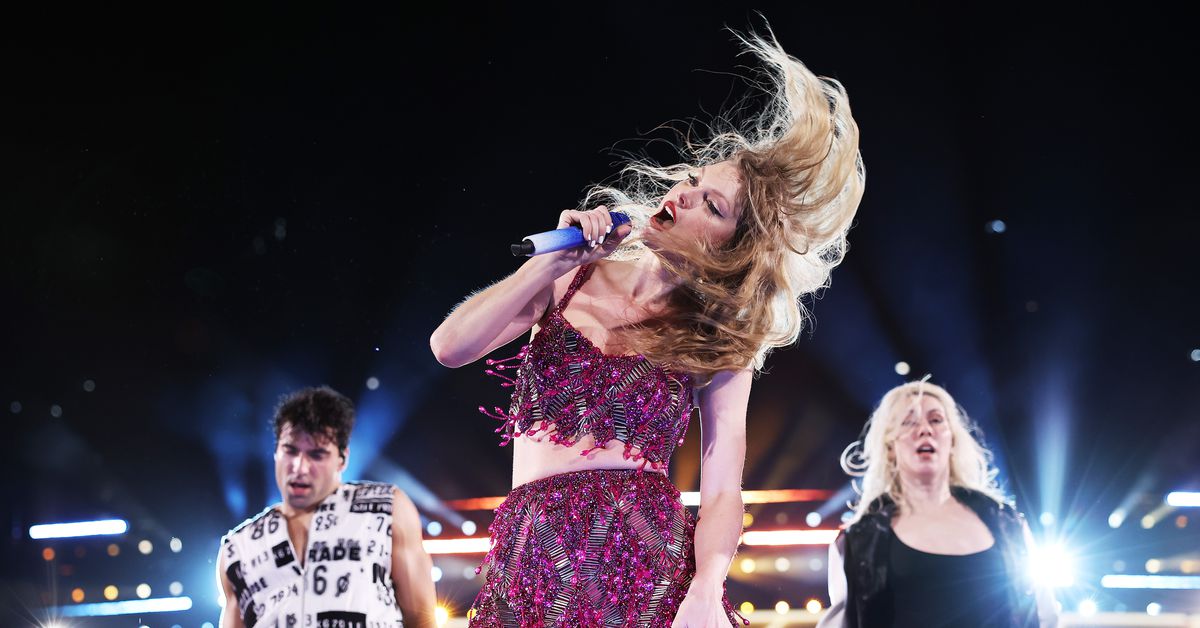
Now, That Wasn’t So Hard, Was It?
Last night’s Oscars were a reminder that, conceptually, the Oscars are not brain surgery. Hire a host; tell a few jokes; sing the songs; give out the awards. Yes, the show is enormously complicated to produce, but that’s basically it, and that’s what we finally got. These back-to-basics Oscars — “Oscars Classic,” as I called it last week — served as a rebuke not just to last year’s disaster but to the whole concept of “fixing” the Oscars. We can and will quibble over the actual awards, but it’s hard to argue with a show that pretty much did the thing it was supposed to. It’s also hard to believe that this was all it took to put on a successful Oscars show. We’ll see, of course, if the ratings reflect that.
With the return to simplicity came an attention to the actual crafts being recognized. Best Editing was presented against a background of two people working on different editing machines — one ancient, one computerized. For Best Costume Design, they brought costumes from the nominated films onto the stage. Best Cinematography featured a brief lesson about Spike Lee and Ernest Dickerson’s use of the dolly and Orson Welles and Gregg Toland’s use of low angles. Best Score was preceded by a lively orchestra routine showing how music can underline different moments. Many of these were subtle touches, but after years of the Oscars seeming to run from the very art form they were supposed to be honoring, and particularly after eight categories had been unceremoniously cut from last year’s show, seeing some care given to the actual work that goes into filmmaking was touching.
The truth is that when the Oscars work, they don’t work because of pre-planned bits or brilliant jokes or some daring new spin on the show. The Oscars monologue is rarely memorable, but it can serve as a barometer for how the producers feel about their mission. Jimmy Kimmel’s jokes didn’t provide many laugh-out-loud moments (though “Cocaine Bear, leave Malala alone!” has a decent shot at an afterlife), but he kept things moving and light on their feet without ever trying to make the show about himself. The host is the one person on Oscar night who isn’t allowed to look desperate.
At its best, the Oscars don’t really pander to us viewers but rather make us feel like we’re eavesdropping on an industry event.
No, when the Oscars work, they work because the winners say or do something memorable. And last night gave us plenty of that. I enjoyed the speeches by Ke Huy Quan and Jamie Lee Curtis that effectively kicked off the night, in part because they provided two emotional variations on what an Oscar can mean to people. Quan had abandoned acting before Everything Everywhere All at Once came around, so for him, this was an acknowledgement that there was a place for him in the industry. On the other side, Curtis is a legend who has been working steadily for decades and made some enormously popular movies, but has rarely been thought of as an Oscar contender; for her, this was not just an acknowledgement of a body of work, but also maybe an admission that movies like the ones she tends to make matter. Both winners cried, and their tears were genuine. What their speeches got across was that the Oscars is an industry night, and an industry show. And at its best, it doesn’t really pander to us viewers but rather makes us feel like we’re eavesdropping on an industry event. (This, by the way, was one of the saving graces of the pandemic-hobbled 2021 show.)
There were other big emotional moments among the later winners, but the one that really got me was Ruth Carter’s quiet tribute to her recently deceased mother: “Chadwick, please take care of Mom.” And yes, the whole room singing “Happy Birthday” to Irish actor James Martin, star of the short film An Irish Goodbye and a person almost no one there had ever met, was charming. (That is why you broadcast the Best Short awards. Because their winners say and do things like that.) Meanwhile, with the aid of some dramatic camerawork that made me wonder if we were going full opening-shot-of–Fight Club, Lady Gaga turned one of the very few forgettable elements of Top Gun: Maverick into something that actually resembled a real song; her stripped-down live performance should be the only version of “Hold My Hand” going forward. I’d say the same for David Byrne and Stephanie Hsu’s rendition of the song from EEAAO, but I didn’t even know there was a song from EEAAO. Still, let’s thank Byrne and his hot-dog fingers for reminding us that the Oscar juggernaut remains a first-ballot Weird Movie Hall of Fame inductee.
I guess people will continue fighting over Everything Everywhere All at Once. It’s one of the side benefits of winning Best Picture. Arguments over your quality now become eternal debates. I like EEAAO a great deal, and I like the Daniels as people and artists. All that stuff about how closely they work with their collaborators and the power of the collective isn’t just awards-season blather; all these people really are close friends, and they really do live and work in close proximity to each other. The offbeat nature of the Daniels’ films speaks to the fact that they are the result of a pretty free give-and-take, a collection of ideas from many different people. (I’m sure this fact will now be seen by some as evidence of Why the Daniels Suck So Hard™.) That said, I am, in general, not a big fan of Oscar sweeps; I get excited when Best Director and Best Picture and the acting prizes go to different movies. But even the unprecedented EEAAO Oscar bounty felt like a kind of throwback to those years when one film clearly dominated the awards race.
Beneath all this surface, back-to-basics simplicity, however, one can sense that things are not, in fact, so simple. In the past, the Oscars show often featured extended clip montages that served as tributes to some classic genre or element. (War movies! Westerns! Romance!) These were usually tacky, but if you were a movie lover, they were also often glorious because they included at least a few scenes from movies you loved. Those clip montages have gotten a bad name in recent years — they certainly ate up a lot of time — and seemed to have gone extinct. This year, however, they returned with a creepily corporate, almost zombified twist: They didn’t honor genres or classic elements or whatever, but actual studios. We got a Disney montage, which may or may not have been an actual in-house commercial, given that Disney owns ABC. We also got an extended Warner Bros. commercial.
And, yes, we got that awkward spectacle of the Oscars premiering a trailer, with presenters and everything, for Disney’s live-action The Little Mermaid coming this summer. Was agreeing to air this Disney trailer the cost of getting to present all 24 categories this year — a concession to ABC’s parent company? More likely, it’s a sign of the times. In the Streaming Wars, the studios are desperate to distinguish themselves as distinct brands, something the average civilian doesn’t really think of them as (aside, maybe, from Disney). You might like Toyota cars or Nike sneakers, but do you really ask yourself if you like Warner Bros. or Sony movies? Well, Hollywood wants you to. In fact, Hollywood needs you to. That’s why the Warner Bros. montage included snippets of old MGM movies, a library Warner now owns but had zero hand in producing.
If the Oscars represent an industry speaking to itself, these beefed-up commercials were the night’s real mask-off moments — when ads meant for regular viewers said more about the industry than any shareholder meeting ever could. This is an existential matter for Hollywood because of the corner they’ve backed themselves into. In the past, the studios just had to sell movies. Now, they have to sell themselves. If desperation is the fuel that powers the Oscars, then these studio ads were the most desperate moments of the night.










































































